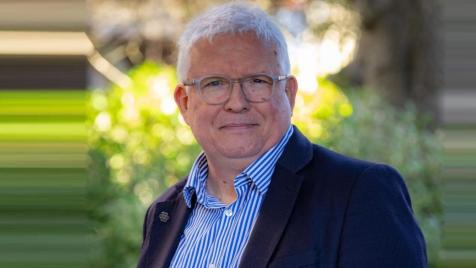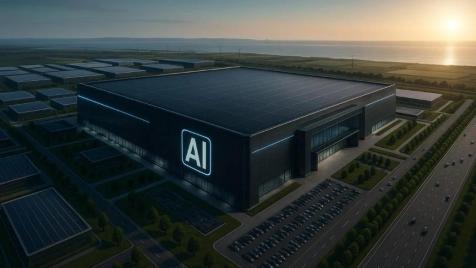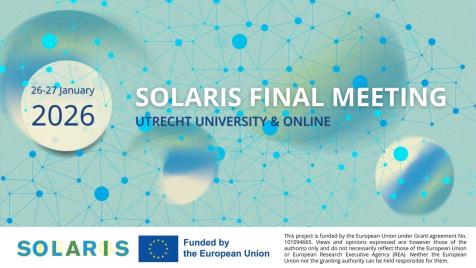AI in Marketing – When Is Human Creativity Irreplaceable?
Authenticity in marketing is more important than ever
© ECONOMIC.BG / ExpandX
Polina Decheva, Partner, and Temelko Dechev, Managing Partner at ExpandX Marketing & Web
Artificial intelligence has transformed the marketing world from the ground up. Despite its massive potential for content creation, AI can support a company’s marketing just as easily as it can harm it. This is the topic we dive into in today’s interview with the two partners at ExpandX Marketing & Web, Temelko Dechev and Polina Decheva.
Our conversation focuses on both the trends and new opportunities in the age of AI, as well as the most common mistakes companies make when using artificial intelligence in their marketing. And more: where AI truly excels, where the human touch remains essential, and why authenticity in marketing is more important than ever.
How is AI changing the marketing landscape, and specifically content creation?
Perhaps the most accurate word to describe the use of AI in content creation is “scale.” AI takes over a huge portion of the purely technical work and, when used correctly, can multiply the productivity of the specialists in a marketing agency.
When it comes to design and video creation, AI makes it incredibly fast to test different conceptual ideas, build imaginary worlds and characters, and generate surreal visuals and bold creatives that instantly grab users’ attention online. In a single afternoon, you can produce content that not long ago would’ve taken a full team days or even weeks. But all of this comes with one catch: you don’t have much control over the final output.
Yes, you can write an insanely detailed prompt, but the design will always end up with some elements entirely decided by the AI. That’s not a problem when the goal is to have a little break from standard marketing – for example, with a surreal-style AI marketing video. But if you want to use AI for a serious campaign that requires precise representation of specific products, this lack of full control becomes a real issue. In such cases, manual human editing afterward is inevitable.
The splashy ads for the latest content-generation tools are incredibly misleading in this regard. Everywhere you see promises like “a video in 1 minute,” “a website in 5 minutes,” and so on. But no–nothing actually gets done in one minute, especially if you expect the final result to be usable and to bring real value to your business.
This is also where we should mention the use of ChatGPT and similar models for generating written content. In this area, AI can serve as a catalyst, but it cannot fully replace a human copywriter. People can tell when a text is created by AI. The rhetoric, the word choice, even the rhythm of the sentences – these things still show through, no matter how well you “instruct” the AI tool. The issue is that with marketing copy, we’re always trying to build a connection with the person on the other side.
AI-generated content might be grammatically flawless, well-structured, and smooth – but it often lacks the human nuance, the personal point of view, the emotional depth. And when that absence becomes obvious to the audience, it doesn’t just lead to indifference – it starts to erode trust. And trust is the main currency in marketing.
How do you recommend marketers prepare for a future in which AI will play an increasingly important role?
Marketers should prepare with knowledge, critical thinking, and strategic adaptability. The future won’t be divided into “marketers with AI” and “marketers without AI,” but into those who know how to use it effectively and those who are afraid of it. That’s why it’s essential to understand how these models work – where their strengths lie, but also where their limitations are.
Marketers need to continue developing skills in strategic marketing, brand management, and understanding consumer behavior – all areas where AI cannot fully replace the human element. The most successful professionals will be those who combine technological literacy with human judgment and the ability to create content with personality, emotion, and a clear point of view. These are the skills that cannot be automated.
What is the biggest challenge marketers face today?
The biggest challenge is the fading of authenticity. Today’s Internet is filled with content that looks the same–well-structured, politically correct, but faceless. When communication sounds generated, it stops being communication – it becomes noise. And noise is the opposite of marketing.
The audience can tell a human voice from an automated one. It can tell a point of view from a template. A real story from neatly arranged phrases. When a brand allows AI to replace the human touch, it loses its identity. Marketing works only when the audience recognizes authenticity–and believes in it. Losing that connection is the biggest challenge businesses must avoid.
MastersCONF 2025, the conference co-organized by ExpandX Marketing & Web, is placing these exact topics at its the center– the real role of AI in marketing and business in general, the boundary between technology and human creativity, and the ways businesses can use AI without losing their individuality or competitive edge.
The speakers at the event are proven experts from leading Bulgarian and international companies who will present real cases, practical observations, analyses, and tools that can be applied the very next day. MastersCONF is where marketing, leadership, and technology meet–and the place where companies learn how AI can become their ally, but not their identity.

 *
* 


